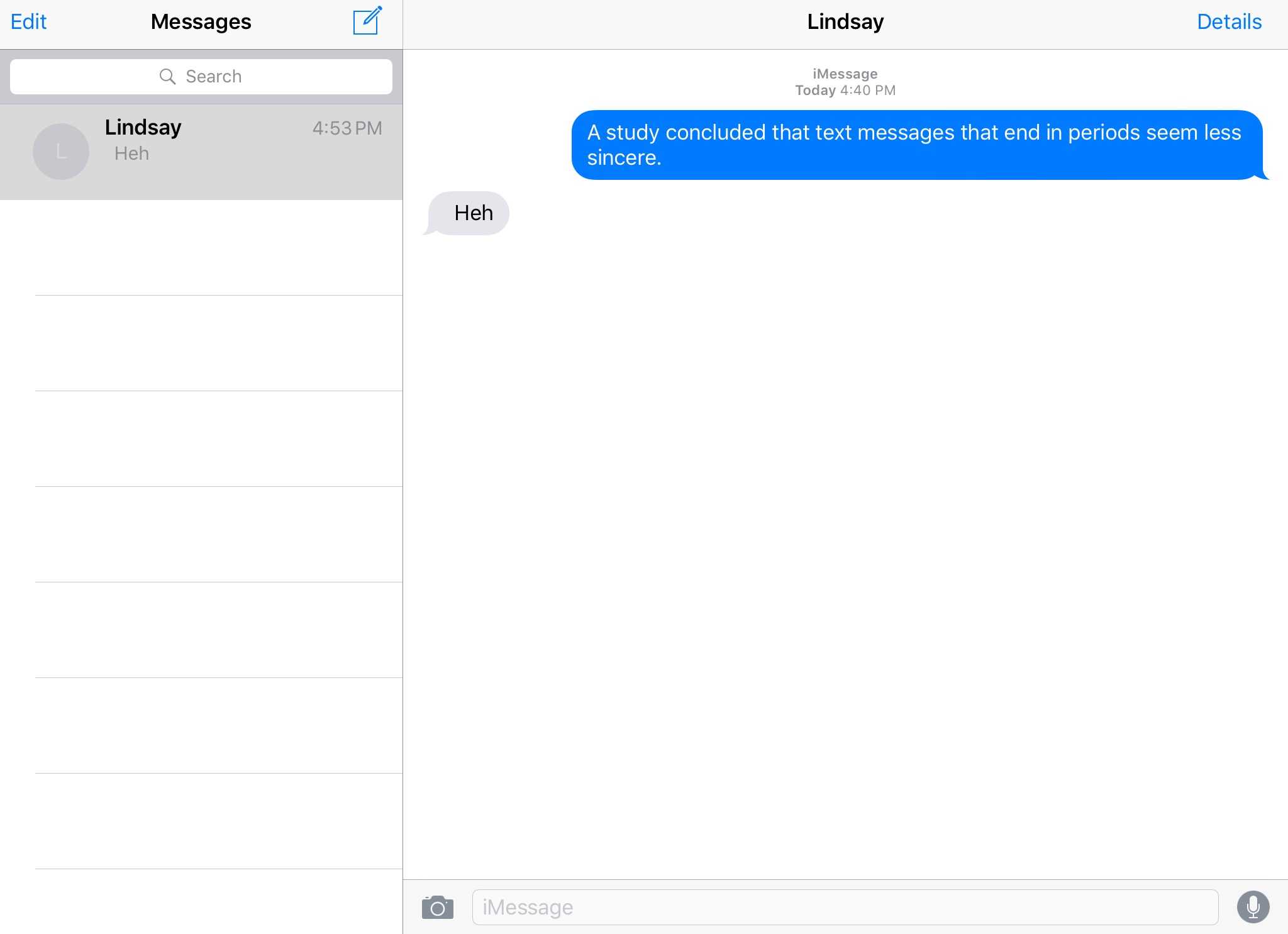I try to maintain grammatical integrity no matter what I’m typing. But a new study suggests that people may not appreciate that while text messaging, and it’s not just because they think I’m showing off how much gooder I can word.
The researchers concluded that texts that end in proper and correct periods come off as insincere.
The study, which comes courtesy of Binghamton University’s Celia Klin and her team, presented 126 undergrads with the same messages. Some were in text-message format, and some were handwritten notes. The exchanges consisted of invitations to get drinks or watch sportsball or whatever human beings do, with short replies. Respondents said that when those replies ended with the proper symbol of a full stop, they were like, “Uuuuuugh.” But when the sentence stayed open, they were all, “Yaaaaay.”
Put more properly:
“When the exchanges appeared as text messages, the responses that ended with a period were rated as less sincere than those that did not end with a period,” the study abstract says. “No such difference was found for handwritten notes. We conclude that punctuation is one cue used by senders, and understood by receivers, to convey pragmatic and social information.”
What this suggests is that the meaning of a period changes depending on the format in which it appears. It may not be necessary in apps like Messages because the bubble enclosing your words fulfills that function without bringing punctuation into the mix. But that’s some tough news for those of us who try to keep correct all the time.
Super-short replies like “Yeah” or “OK” can come off as terse whether you use a period or not, but apparently that just didn’t fly with these study participants. The sample just did not like those little dots. But digital messages offer additional tools like emoticons and emojis to help avoid bad impressions or miscommunication, so you could conceivably have it both ways.
This is just another example of how context changes meaning. Not long ago, we here at Cult of Mac got into a heated exchange about whether or not one should use a comma when describing features like “Hey, Siri” and “OK, Google,” despite them not appearing in official company marketing. One group said that it is a comma of direct address and should be there even if companies don’t use it, and the other group was wrong.
Via: Washington Post


